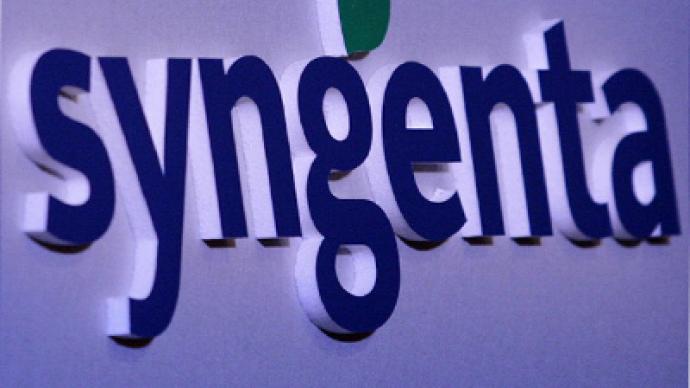Monsanto competitor Sygenta forced to pay $105 million for contaminating US water supply

The company behind one of the world’s most used chemical herbicides has settled a class-action lawsuit in the United States and will pay plaintiffs $105 million to end allegations that they knowingly poisoned drinking water.
Switzerland’s Syngenta AG has been at the center of a class-action lawsuit because hundreds of community water systems across the United States have allegedly been contaminated by the company’s atrazine weed killer. For decades, communities across the country in at least 45 states have had their water supply contaminated by atrazine and have been forced to spend millions to filter out the poison to allow for same consumption. In a press release put out this week by the lead attorney for the plaintiffs, Korein Tillery LLC, lawyers say that the community water systems affected by Atrazine contamination have impacted more than one-in-six Americans. The $105 million settlement will go towards reimbursing districts that have had to implement their own filtration systems to eliminate the poison and Stephen M. Tillery of the law firm says that upwards of 300 communities with the highest contamination levels will recover 100 percent of their costs.“The scope of this historic settlement is enormous and its protection of the health of millions of Americans across the country is a huge benefit to the public, the environment, and the taxpayers,” Tillery adds. Roughly 200 water utility companies are eligible to recoup, at least in part, their expenses through the settlement.Syngenta AG’s Atrazine is a weed killer used by many of American’s farmers through the Midwest region of the country on corn, the nation’s number one crop. Its major competitor, the Monsanto corporation, has attracted criticism in recent weeks because they plan to release a GMO corn variant that will be immune to a pesticide manufactured by Dow Chemicals that contains known carcinogens. The class-action suit against Syngenta AG has been in and out of courtrooms for eight years now, but a 2009 article in the New York Times was considered instrumental in exposing the dangers of the chemical. The manufactures of the chemical have consistently condemned allegations that atrazine is hazardous to humans, although the US Environmental Protection Agency (EPA) requires that anyone planning to use it must enroll in a training course and is warned to wear special clothing while handling the chemical. The Times noted in their article that the chemical is not allowed to be applied “near lakes, reservoirs or other bodies of water,” although, at the time of that article’s pressing, six states including Illinois, Indiana, Iowa, Kansas, Mississippi and Ohio had all filed claims against Syngenta because they had to remove the chemical from their water supply. Separately, some scientists have concluded that atrazine exposure has caused birth defects. Although the recent settlement will not impact where Syngenta AG can sell the herbicide domestically,a ban on the chemical was previously initiated in the European Union. As part of the settlement, Syngenta AG will be denied any further liability regarding human exposure to atrazine. “Settling this case will remove the burden of litigation from Syngenta's partners, customers, retailers, distributors and others who have been inconvenienced by the lawsuit,” the company responds in an official statement this week.














